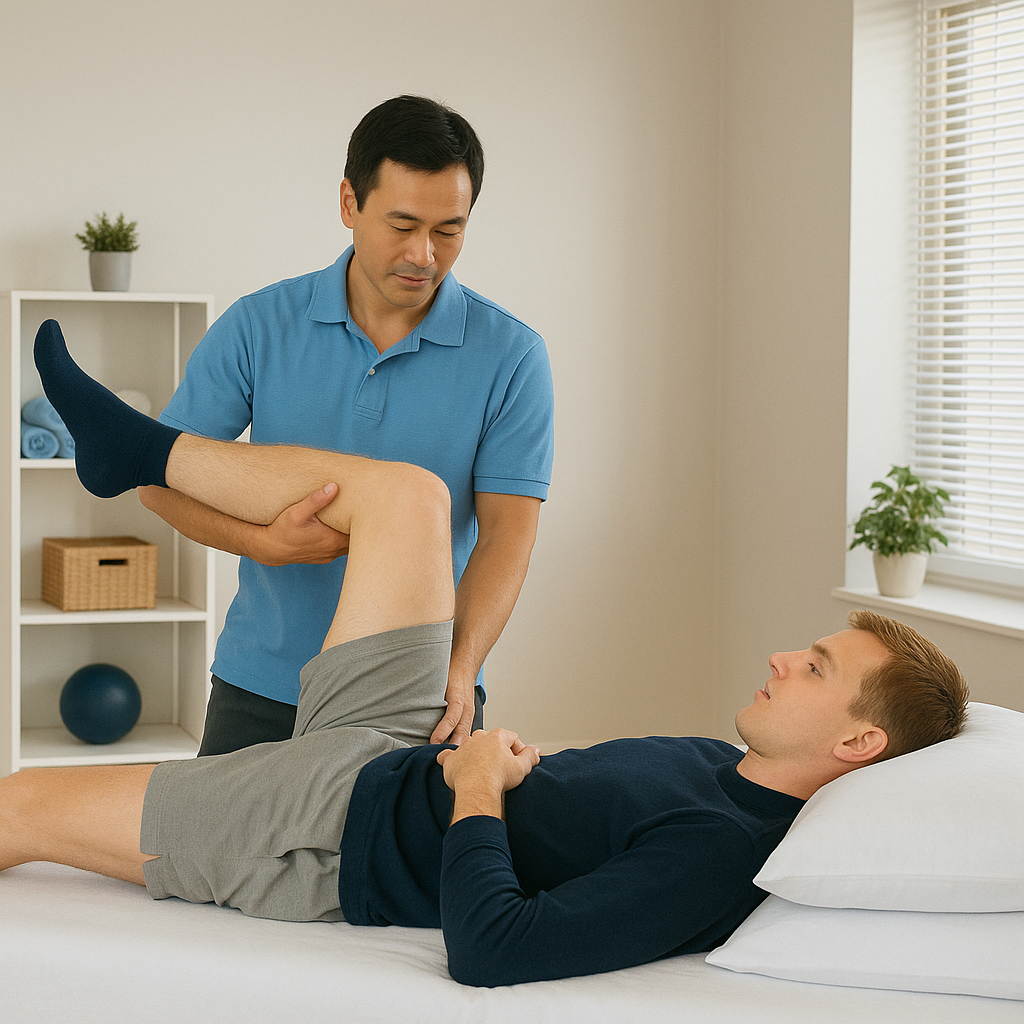Physiotherapy in Canada
Physiotherapy, also known as physical therapy, is a regulated health profession in Canada. Physiotherapists (PTs) help people restore, maintain, and improve physical function, mobility, and overall well-being. They play a vital role in injury rehabilitation, chronic disease management, and preventive health care.
Scope of Practice

Physiotherapists in Canada work in a variety of settings, including:
- Hospitals
- Private clinics
- Rehabilitation centres
- Long-term care homes
- Community health centres
- Home care and school-based programs
Their services include:
- Assessment and diagnosis of physical conditions
- Development and implementation of individualized treatment plans
- Manual therapy, exercise prescription, and modalities such as ultrasound or electrical stimulation
- Patient education and injury prevention
Each province and territory has its own regulatory college that ensures physiotherapists meet professional and ethical standards. A license or registration is required to practice in any jurisdiction.
Canadian Alliance of Physiotherapy Regulators (CAPR)
The Canadian Alliance of Physiotherapy Regulators (CAPR) is the national organization that provides evaluation and credentialing services on behalf of Canadian provincial and territorial physiotherapy regulators (excluding Quebec).
Roles and Responsibilities of CAPR
- Credential recognition for internationally educated physiotherapists (IEPTs)
- Administration of the Physiotherapy Competency Examination (PCE)
- Supporting the uniformity of entry-to-practice standards across Canada
CAPR does not regulate physiotherapists directly but works collaboratively with provincial colleges to ensure only qualified individuals are licensed to practice.
Physiotherapy Competency Examination (PCE)
The PCE is a standardized assessment used to evaluate whether candidates have the essential knowledge, skills, and judgment required to enter physiotherapy practice safely and effectively in Canada.
Who Needs to Take the PCE?
- Canadian-educated physiotherapists who graduate from an accredited program.
- Internationally educated physiotherapists (IEPTs) who have had their credentials assessed and approved by CAPR.
Note: Graduates from physiotherapy programs in Quebec are licensed through a separate process and do not take the PCE.
Structure of the PCE
As of recent updates (2022 onward), the PCE consists of a Written Component only, following the discontinuation of the clinical component:
1. Written Component (Computer-Based Test)
- Multiple-choice format
- Administered at secure testing centers
- Assesses clinical decision-making, knowledge application, ethics, and communication
Key Areas Tested
- Cardiorespiratory
- Musculoskeletal
- Neurological
- Professional and ethical practice
- Population health and interprofessional collaboration


